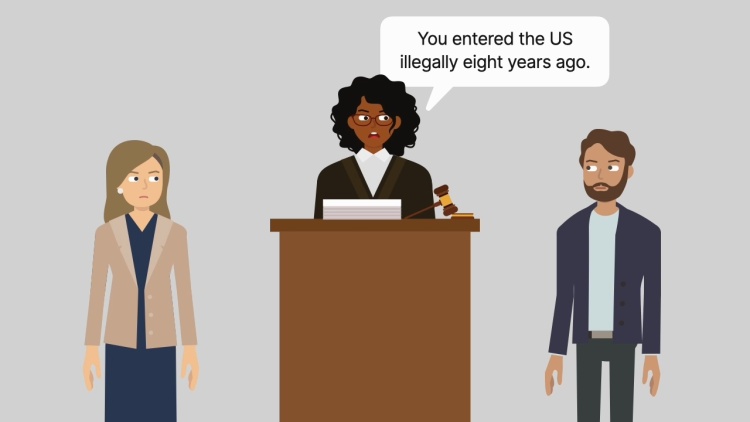Niz-Chavez v. Garland
United States Supreme Court
593 U.S. 155, 141 S.Ct. 1474, 209 L.Ed.2d 433 (2021)
- Written by Sara Adams, JD
Facts
Agusto Niz-Chavez (defendant) was an illegal alien residing in the United States (plaintiff). The United States initiated deportation proceedings against Niz-Chavez eight years after he arrived in the United States. Niz-Chavez received two documents related to his deportation hearing. The first document notified Niz-Chavez that he was subject to deportation proceedings because he illegally resided in the United States and that he would be required to attend a deportation hearing. The second document, which Niz-Chavez received two months later, contained the details about the hearing’s time and location. Niz-Chavez appeared at the hearing and was found to be subject to deportation. Niz-Chavez appealed, arguing that he was improperly served a notice to appear because his notice consisted of two separate documents. Niz-Chavez did not argue that a single notice was required to initiate deportation proceedings. Rather, Niz-Chavez argued that under the Illegal Immigration Reform and Immigrant Responsibility Act of 1996 (the act), a single notice was required for receipt of the notice to stop his time living in the United States from counting toward the possible cancellation of his deportation.
Rule of Law
Issue
Holding and Reasoning (Gorsuch, J.)
Dissent (Kavanaugh, J.)
What to do next…
Here's why 899,000 law students have relied on our case briefs:
- Written by law professors and practitioners, not other law students. 47,000 briefs, keyed to 994 casebooks. Top-notch customer support.
- The right amount of information, includes the facts, issues, rule of law, holding and reasoning, and any concurrences and dissents.
- Access in your classes, works on your mobile and tablet. Massive library of related video lessons and high quality multiple-choice questions.
- Easy to use, uniform format for every case brief. Written in plain English, not in legalese. Our briefs summarize and simplify; they don’t just repeat the court’s language.





